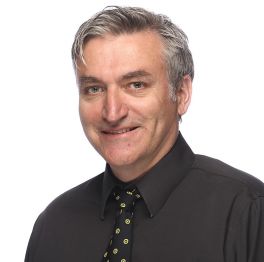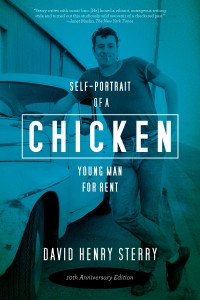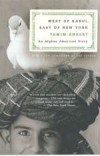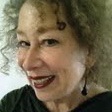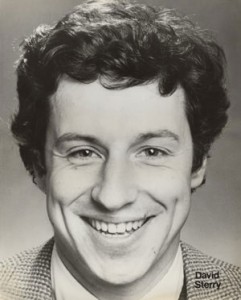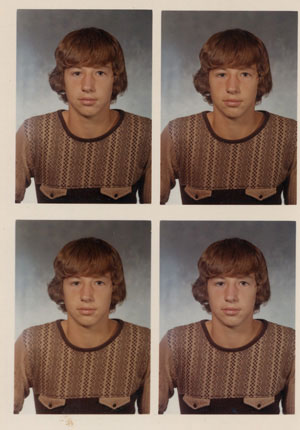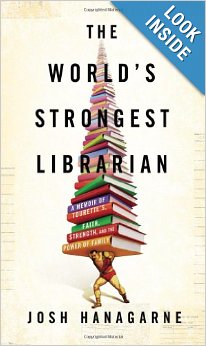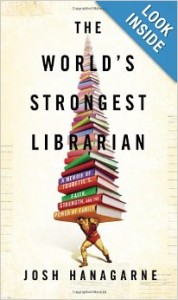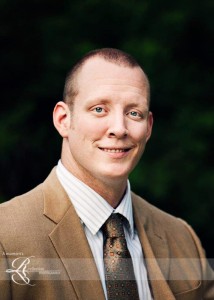To commemorate the publication of the 10 year anniversary edition of my memoir Chicken Self:-Portrait of a Man for Rent, I have decided to do start The Memoir Project. I’ll be doing a series of interviews with memoirists I admire. I have known Tamim Ansary for what seems like a lifetime, but isn’t. He runs the San Francisco Writers Workshop, and in that capacity he demonstrates every Tuesday night how much he knows about writing and books and people. He’s been a professional writer for a very long time. I’ve said publicly that he is the wisest men I know, and I stand by that statement.
David Henry Sterry: Why in god’s name did you decide to write a memoir?
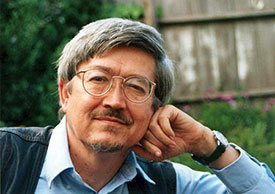 Tamim Ansary: Well, that’s a complicated question since I’ve written three. The first one, West of Kabul, East of New York, I wrote in response to a historical moment. The events of 9/11 had highlighted to rift between the Islamic world and the West, which took most Americans by surprise. I knew all about this issue because I was born in Afghanistan of an Afghan father and an American mother, I had grown up in but grown old in America, and so my whole life had straddled this crack in the culture of the planet. I felt like I was the guy perched on the fence who could see the people on both sides even though they couldn’t see each other. I thought writing about my bicultural life might do some good in the world. The second memoir I wrote was actually someone else’s. I wrote it for an Afghan girl named Farah Ahmadi who had stepped on a land mine when she was in second grade, had lived the horrors of the long war in Afghanistan, and had confronted them with flabbergasting dignity and courage. The exact circumstances of my writing that memoir are peculiar, but I thought her life was an embodiment of both tragedy and resilience that people should know about. So these memoirs were attempts to engage with the world of politics and history. But my latest memoir is a very different sort of project. This is a more philosophical examination of “life story,” a phrase we often use without pausing to consider the implications; because the quesiton is, does a life have a story, a narrative arc, in the same way as a novel? A beginning, middle and end that adds up to meaning of some sort? Several years ago, I was telling someone about a trip I had taken, I happened to tell it all one sitting, and when I was done, it struck me that any journey to any place far away and difficult to reach has a narrative arc if consider it as a whole. I wondered if I could capture the “story-like arc” of one-whole-life by recounting a selection of iconic journeys. The result is Road Trips. The journeys I chose for this book took place when I was 10, 19, 24, 31, 50, and 52: so the movement is through time as much as space. This memoir is not hooked to news events or public issues, it tells a private story, and it’s a story I believe all of us have some version of: that odyssey from young to old and the things that happen along the way: falling in love, falling out of love, breaking up, breaking down, drifting, drowning, searching for solid ground… and finding it…maybe… The details are different for each person but underneath the welter of particulars is, I think, some single story that can be made visible only through the details of a specific life. Mine is the only life I know well enough to use as such a lens, and so I wrote this book. But I’m hoping this book will get readers ruminating on the story-like elements of their own lives even if, as is likely, their lives and mine don’t share a single particular detail. Because my premise here is that the narrative is there in every life; it’s there, you just have to look for it.
Tamim Ansary: Well, that’s a complicated question since I’ve written three. The first one, West of Kabul, East of New York, I wrote in response to a historical moment. The events of 9/11 had highlighted to rift between the Islamic world and the West, which took most Americans by surprise. I knew all about this issue because I was born in Afghanistan of an Afghan father and an American mother, I had grown up in but grown old in America, and so my whole life had straddled this crack in the culture of the planet. I felt like I was the guy perched on the fence who could see the people on both sides even though they couldn’t see each other. I thought writing about my bicultural life might do some good in the world. The second memoir I wrote was actually someone else’s. I wrote it for an Afghan girl named Farah Ahmadi who had stepped on a land mine when she was in second grade, had lived the horrors of the long war in Afghanistan, and had confronted them with flabbergasting dignity and courage. The exact circumstances of my writing that memoir are peculiar, but I thought her life was an embodiment of both tragedy and resilience that people should know about. So these memoirs were attempts to engage with the world of politics and history. But my latest memoir is a very different sort of project. This is a more philosophical examination of “life story,” a phrase we often use without pausing to consider the implications; because the quesiton is, does a life have a story, a narrative arc, in the same way as a novel? A beginning, middle and end that adds up to meaning of some sort? Several years ago, I was telling someone about a trip I had taken, I happened to tell it all one sitting, and when I was done, it struck me that any journey to any place far away and difficult to reach has a narrative arc if consider it as a whole. I wondered if I could capture the “story-like arc” of one-whole-life by recounting a selection of iconic journeys. The result is Road Trips. The journeys I chose for this book took place when I was 10, 19, 24, 31, 50, and 52: so the movement is through time as much as space. This memoir is not hooked to news events or public issues, it tells a private story, and it’s a story I believe all of us have some version of: that odyssey from young to old and the things that happen along the way: falling in love, falling out of love, breaking up, breaking down, drifting, drowning, searching for solid ground… and finding it…maybe… The details are different for each person but underneath the welter of particulars is, I think, some single story that can be made visible only through the details of a specific life. Mine is the only life I know well enough to use as such a lens, and so I wrote this book. But I’m hoping this book will get readers ruminating on the story-like elements of their own lives even if, as is likely, their lives and mine don’t share a single particular detail. Because my premise here is that the narrative is there in every life; it’s there, you just have to look for it.
DHS: What were the worst things about writing your memoir?
TA: The worst thing, I guess, is getting flak from people whom I mentioned in the memoirs, people whose feelings I hurt, people who didn’t seem themselves the way I portrayed them, people who were disturbed, in some cases, to experience themselves as a side chaaracters in someone else’s life, not as the protagonist which is everybody’s internal identitication of him- or herself. And there’s another disturbing thing, which is bound to happen when you write a memoir, especially if you’re doing it right, and especially if the focus is on your own life, not on some public event you observed. This is the discovery of narratives you’ve been carrying in your head all your life which are distorted, even false.
DHS: What were the best things about writing your memoir?
TA: I’ll start where my answer to your last question ended. Gaining discomifting new perspectives on the things you’ve seen, done, and felt is also the good thing about writing a memoir. One can never have too many epiphanies. And in the case of Road Trips, writing it brought epiphanies not just about my own little life but about the life we’re living on this planet, the implications of permanence and change, culture and identity, memory and time, fiction and reality–I mean writing a memoir, if you share my premise about life as story, does immerse you in the most fundamental issue of them all: everything feels so real when it’s happening, but when you look back, all you see is story. So was any of it real in the first place? And if,like me, you decide it was and you feel a connection to what is real, there is no better feeling.
DHS: Did writing your memoir help you make some order out of the chaos we call life?
TA: Asked and answered, your honor? Well, the true answer is yes and no. A memoir helps you make sense of things. Then life keeps happening and it all grows muddy again. You look back and the meaning of it all changed, even stuff you wrote about earlier and thought you nailed completely. The train never stops moving and the same landscape keeps looking different as you move.
DHS: How did you make a narrative out of the seemingly random events that happened to you?
TA: Well, random is a part of life, but so is intention. We’re never just knocking about like particles in Brownian motion. We’re always trying to push our story forward, through the random flotsam and jetsom of the world. Some of that flotsam are obstacles and so they inherently become part of our story; some turn out to be tools but only if we figure out that we can use them, and so those are part of the story too. Some don’t fit into the story either way, so we ignore them, forget them. My premise is that when you write a memoir, you don’t “make a narrative,” you find the narrative. Intentions and obstacles are the indispensable elements of story and those exist in real life at every moment for every person.
DHS: How was the process of selling your memoir?
TA: Selling the first one was easie macheesie because I had just written an email in reaction to the events of 9/11 to twenty or thirty of my friends explaining what I, as an Afghan, thought about the horror because I knew they’d all be asking and I thought it would be say it once to all twenty of them. Those twenty each sent my email to dozens of their friends and by the next day the email had gone viral across the globe and by the weekend had reached tens of milliions–it was, in fact, one of the first examples of the viral phenomenon that the Internet has made possible. That 900 words email took no longer to write than to type. Don’t tell met here is an inherant contradiciton between random events and story: nothing could be as random and accidental as that email and yet it is certainly a story. Anyway, after the email went viral, my agent had no trouble getting publishers interested. The second one, Farah Ahmadi’s The Other Side of the Sky was an odd one. Good Morning America staged a contest for the most inspiring life. Various people sent in one-page descriptions of their life story and the one judged most inspiring got a bunch of cash and a book about them written by a professional writer. Farah won the contest, and I was part of her prize. The third one I’ve just completed, so I’m still n the process of selling it. The difficulty here is that memoirs usually sell on their news hook. They promise to take readers to places they have not been and could never go without this memoir. I promise just the opposite: I intend to take readers to places they too have been, not to startle them with how unique my life has been but to startle them with how unique theirs has been. We’ll see if that concept sells.
DHS: How did you go about promoting and marketing your memoir?
TA: I’m not much of a guy for marketing and promotion much, so I just write ’em and hope the chips fall were they do me some good. The publisher did send me on an extensive book tour for West of Kabul, East of New York, bookstores mostly, and I read from my book and talked. With Road Trips, I’ve been reading from it at literary events, bars, bookstore reading and whatnot while I’ve been writing it, to enthusiastic response, so perhaps I’ve been building an audience for it even while it has been in progress.
DHS: Did you have difficulty speaking in public about the intimate aspects of your memoir?
TA: I used to have difficulty speaking in public about anything—really, anything. Then 9/11 happened, that email went viral, and suddenly I was yanked onto various stages and in front of cameras and microphones facing crowds clamoring to know the stuff I happened to know about and the crisis was so intense, I had to tell what I knew, pour it out, no time to remember that I was shy about speaking in public, I was babbling nonstop, scarcely even knowing what I was saying, for months. When it finally slowed down, I found I no longer had any difficulty speaking in public about anything. And that transformation ha endured. Still, I maintain some reserve. Anything I’ve written about, I’ll speak about. Why not? It’s already out there. Anything I’ve held back about in writing, I will maintain some reserve about in public too. The thing is, I was out to tell my story. People whose paths have crossed mine have shown up in my story, but they have their own stories and I try not to be the one that’s telling theirs.
DHS: How did your family, friends and loved ones react to your memoir?
TA: After I published West of Kabul, East of New York, my mother said “What do you mean I had brown hair? I was a blond!” One of my cousins said how could I call a famous ancestor of ours “a landowner and a poet.” He was a saint! Another cousin observed that of the uncles I had mentioned, his father should have been named the most eminent. An aunt wasmiffed that I had called another aunt Elizabeth-Taylor beautiful. I have also gotten some pretty severe and wounding blowback from Road Trips. On the other hand, I think the first memoir helped me and my brother reconnect after a long estrangement. If you’re going to write a memoir, you have to be ready for some flak. You’ll get it even from—perhaps most of all from—people you’ve scarcely mentioned.
DHS: I hate to ask you this, but you have any advice for people who want to write a memoir?
TA: Well, I’ll say one thing about process: I think it’s a good idea to start without a plan and to do your first rush of remembering while you’re at the keyboard typing away, writing it down. I’d say, let the process of association take you where it will. I’d say, don’t pay attention to what you’re saying or what you’ve just said, focus only on what you’re about to say. Don’t push the string, let yourself be pulled. Later you’ll see what you’ve got and at that point you’ll have to apply other skills to craft your work, but the first skill to cultivate is letting go and not caring or judging. Association is the mechanism of memory, and memory is itself a narrative-creating machine. We tend to think of memories as videotapes that we bring out of storage, but neural scientists tell us that memories are constructed in the act of remembering. They also say that more than half of what we think are perceptions are actually reactions to memory. When we reach for a doorknob we only perceive a flash of color and shape, memory supplies the fact that it is a doorknob and what a doorknob is and what we can do with one. Expand that perception and you realize that we’re always living as much in a story as in an immediately present world, in a narrative whose shape depends on what has happened before and what we expect or hope will happen later.S ettle in with this truth and you begin to see what a gigantic thing it is to write a memoir.
Tamim Ansary writes memoir, fiction, history, essays, and blogs. His book West of Kabul, East of New York tell the story of a life straddling Afghanistan and America. He runs the 65-year-old San Francisco Writers Workshop as well intensive memoir workshops in his home.
David Henry Sterry is the author of 16 books, a performer, muckraker, educator, activist, and book doctor. His new book Chicken Self:-Portrait of a Man for Rent, 10 Year Anniversary Edition, has been translated into 10 languages. He’s also written Hos, Hookers, Call Girls and Rent Boys: Professionals Writing on Life, Love, Money and Sex, which appeared on the front cover of the Sunday New York Times Book Review. He is a finalist for the Henry Miller Award. He has appeared on, acted with, written for, been employed as, worked and/or presented at: Will Smith, a marriage counselor, Disney screenwriter, Stanford University, National Public Radio, Milton Berle, Huffington Post, a sodajerk, Michael Caine, the Taco Bell chihuahua, Penthouse, the London Times, Edinburgh Fringe Festival, a human guinea pig and Zippy the Chimp. He can be found at www.davidhenrysterry.com. https://davidhenrysterry.com/
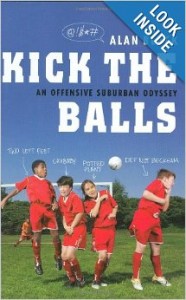 AB: I didn’t write it in His name. I wrote it I my own name. God had already published a couple of biographies, the Bible, the Koran and He even has a global rights deal out in the East with the Upanishads in India. I thought about using His name but then I figured Oprah would find out and I would be exposed as a fraud and I like to keep my fraudulence private like my flatulence.
AB: I didn’t write it in His name. I wrote it I my own name. God had already published a couple of biographies, the Bible, the Koran and He even has a global rights deal out in the East with the Upanishads in India. I thought about using His name but then I figured Oprah would find out and I would be exposed as a fraud and I like to keep my fraudulence private like my flatulence.
